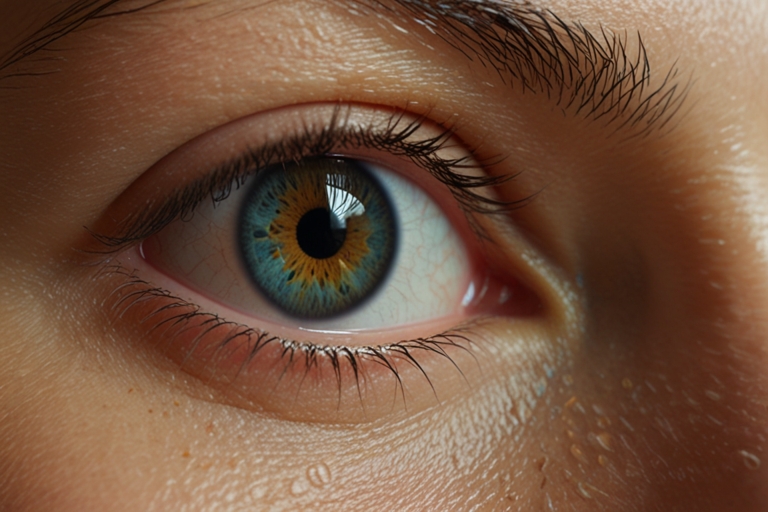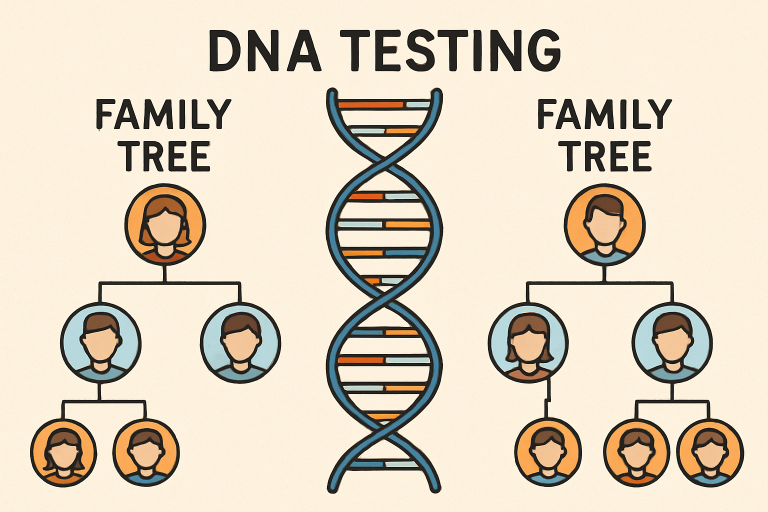Health
The Future of Dry Eye Treatment: Emerging Technologies and Innovations

Understanding Dry Eye Syndrome
Dry eye syndrome is a ubiquitous condition affecting people worldwide. Discomfort and even ocular surface injury result from a persistent lack of lubrication and moisture on the eye’s surface. Symptoms can include irritation, blurred vision, and a gritty sensation as if something is in the eye. The prevalence of this condition highlights a significant public health issue, often underestimated due to its symptoms being mistakenly attributed to aging or environmental factors alone. However, recognizing and appropriately managing this syndrome is crucial. Engaging in an effective treatment for mgd Bedford can be essential in reducing these symptoms and improving activities of daily living that are significantly impacted by dry eyes, such as reading and using screens.
Common Causes of Dry Eye
Fighting the consequences of dry eye syndrome requires understanding its underlying causes. The condition can arise from many factors, including environmental elements like wind and smoke, which exacerbate the evaporation of tears. Prolonged digital device use has surfaced as a modern culprit, as it often results in decreased blinking, subsequently diminishing tear production. Moreover, the natural aging process, especially post-menopause, can decrease tear secretion. Medical conditions, including diabetes and rheumatoid arthritis, as well as certain medications like beta-blockers and antihistamines, can also cause dry eye. Addressing these underlying causes through a comprehensive approach is key to managing the condition effectively.
Daily Habits to Alleviate Symptoms
Implementing strategic daily habits can serve as a first line of defense against the symptoms of dry eye syndrome. One strategy to lessen strain is to use the 20-20-20 rule for screen time, which calls for 20 seconds every 20 minutes while gazing at something 20 feet away. Hydration is also crucial, as sufficient water intake supports overall bodily functions, including healthy tear production. Sunglasses with wraparound frames can block wind and UV radiation, further protecting the eyes. Indoors, using a humidifier can counteract the dryness caused by air conditioning or heating systems.
Advanced Treatment Options
Advanced treatment options for dry eye include prescription eye drops, punctal plugs, and intense pulsed light therapy. These treatments can increase tear production, reduce inflammation, and improve oil gland function. However, each treatment plan should be tailored to the patient’s needs, considering factors like symptom severity and underlying medical issues. These treatments can help alleviate dry eye symptoms.
Environmental Factors Affecting Eye Health
Environmental variables significantly influence the development and intensity of dry eye symptoms. Air conditioning and heating systems can create dry indoor environments, stripping away eye moisture. Pollution and allergens in the air, such as pollen and dust, can irritate the eyes further and aggravate dryness. Simple adjustments, like using an air purifier to reduce allergens and taking regular breaks during activities that necessitate focused visual concentration, such as reading or sewing, can drastically reduce symptoms. Balancing indoor humidity levels promotes better eye health and supports respiratory and skin health.
Technological Innovations in Eye Care
Technology integration into healthcare has paved the way for innovative eye care and treatment approaches. Specialized eyewear, including moisture chamber glasses and newer contact lenses, has been developed to help retain moisture and shield eyes from irritants. Diagnostic advancements now allow more personalized assessments of tear production and gland function. This technological progress means more accurate treatments can be developed and applied specifically to individual needs, offering renewed hope to those struggling to manage dry eye symptoms.
Health
How DNA Testing Is Changing Family Dynamics

Key Takeaways
- DNA testing can reveal unexpected familial relationships, leading to both positive and challenging emotional experiences.
- Legal implications, such as inheritance disputes, are increasingly common as new biological connections come to light.
- Open communication and professional support are essential for families navigating the complexities introduced by DNA discoveries.
In the last decade, DNA testing has surged in popularity as people seek insights into their heritage and health or hope to locate long-lost relatives. With affordable, accessible testing, anyone can unlock secrets encoded in their genetic code, sometimes within days. This ease of access has even led to services offering a quick DNA test Victorville, CA for those seeking fast answers to pressing familial questions. The implications are vast, touching not only on personal identity but also on the nature and structure of families themselves.
While the promise of self-discovery is enticing, the reality of what DNA stories may reveal is often complex. For some, DNA testing brings long-awaited closure, joyous reunions, and a deeper sense of belonging. For others, it can disrupt family harmony, upend assumptions, and bring legal or privacy concerns to the forefront. As more families embark on this journey, understanding the profound role of DNA testing in shaping relationships becomes essential.
For parents, adoptees, and anyone curious about their roots, the emotional and social ramifications of DNA testing are becoming an important societal conversation. Support groups and forums have sprung up to help people process, share, and navigate these revelations on both a personal and legal level. As we continue to explore our ancestry and identities, we must ask how our sense of family will adapt to science’s ability to reveal hidden truths.
Recent advances mean that even a single genetic test can have a ripple effect, sometimes even making the news, as when relatives discover each other through unexpected results shared on testing platforms.
Unexpected Discoveries
More and more, DNA testing leads to surprising familial revelations. Individuals commonly discover half-siblings, previously unknown biological parents, or even entire branches of family they never knew existed. Platforms that allow users to upload and compare their data with others worldwide are revealing these secrets at unprecedented rates. These discoveries can be exhilarating for those seeking the truth about their origins, but they can pose challenges to established identities and family legacies.
Emotional Impact
The emotional journey sparked by unexpected DNA findings is as complex as it is personal. Newly discovered relatives can bring feelings of joy, validation, or a longed-for connection, especially for adoptees and donor-conceived individuals. Conversely, revelations about infidelity, hidden adoptions, or mistaken paternity can provoke grief, anger, or even a sense of betrayal. Families must allow space for everyone to process emotions and to recognize that it may take time to integrate this new reality. Emotional support networks, as well as individual or family counseling, are often helpful during these transitions.
Legal Implications
The legal ramifications of DNA revelations are rapidly catching up with the technology. Cases of inheritance disputes, where newly revealed biological children exist, in which existing wills have already made their way through American courts. Questions of legal paternity, parental rights, and obligations are regularly revisited in light of new genetic evidence. As a result, estate planners and family law attorneys are increasingly advising clients to address these potential scenarios in wills and legal documents to avoid future litigation and family discord.
Privacy Concerns
With genetic data stored in online databases, concerns about privacy and security have intensified. Family members who have not taken a test themselves might still be indirectly implicated or identified when relatives sign up and share results. Larger data leaks, such as those experienced by popular DNA testing companies, have heightened awareness of how personal and sensitive genetic information really is. To understand who controls their data and how it might be used in educational contexts, prospective test takers should conduct due diligence to identify which businesses best respect privacy.
Navigating New Family Dynamics
Blending newfound family members into existing family structures can be both rewarding and fraught with complexities. Communication is crucial for managing expectations and for redefining relationships. Everyone involved may grapple with questions of loyalty, personal identity, and shared history. Setting boundaries, agreeing on new family roles, and fostering mutual respect help everyone adapt to these changes. For many families, this process is ongoing, as new discoveries may emerge years after the initial test.
The Role of Professional Support
Genetic counselors and therapists trained in identity and family systems can provide invaluable support to families experiencing DNA-related changes. These experts offer coping strategies for emotional upheaval and can help individuals process grief, confusion, or anger. Additionally, they provide guidance in approaching new biological relatives, managing difficult conversations, and defining the future of family relationships. Professional mediation may also be required for legal disputes that arise from unexpected DNA findings.
Conclusion
DNA testing has fundamentally altered the definition and experience of family. While it promises a deeper understanding of our origins, it also demands that we navigate new emotional, legal, and social terrain. By fostering open dialogue, leveraging professional resources, and carefully considering privacy issues, individuals and families can find empowerment in their discoveries and chart a path to stronger, more authentic connections.
Health
What is the GyneCube? A Modern Solution for Pelvic Health

Did you know that nearly half of all women over 50 experience some degree of pelvic organ prolapse (POP)? For a condition so common, many are still hesitant to talk about it or explore their options. If you’re among those navigating this challenge, you might be wondering if there’s a comfortable, discreet, and effective solution beyond surgery. This is where the GyneCube enters the picture—a modern, cube-shaped medical device designed to offer support and give you back your confidence and comfort.
Let’s dive into what the GyneCube is, how it works, and how it might help you reclaim your daily life without missing a beat.
Understanding Pelvic Organ Prolapse (POP)
First, it helps to understand the “why” behind the device. Think of your pelvic organs—your bladder, uterus, and rectum—as being held in place by a sturdy hammock of muscles and tissues. Over time, this hammock can stretch and weaken. Common causes include:
- Childbirth, especially vaginal deliveries
- Aging and menopause
- Chronic heavy lifting or straining
- Chronic coughing or obesity
- Simply genetics
When this support system weakens, one or more pelvic organs can “prolapse,” or sink down into the vagina. This can lead to a frustrating range of symptoms, such as:
- A feeling of pressure, heaviness, or fullness in the pelvis
- Seeing or feeling a “bulge” in the vaginal area
- Lower back pain
- Bladder problems, like stress incontinence (leaking when you cough, laugh, or sneeze)
- Bowel movement difficulties
It’s a physical and often emotional burden, but the good news is that effective management strategies exist.
What Exactly IS the GyneCube?
The GyneCube is not a mysterious medical gadget. In simple terms, it’s a small, cube-shaped pessary made from soft, medical-grade silicone. A pessary is a device that is inserted into the vagina to provide structural support to the pelvic organs.
Think of it as a tiny, internal supportive cube that gently props everything back up into its proper place. It’s a non-surgical, removable option that you can use as long as you need it. Unlike some older, ring-shaped pessaries, its unique design aims to provide stable, multi-directional support.
How Does the GyneCube Work? It’s Simpler Than You Think
You might be picturing a complicated mechanism, but the principle is beautifully straightforward. Once a healthcare provider fits and inserts the cube correctly, it works by:
- Creating Structural Support: The cube sits in the vaginal canal, physically supporting the walls of the vagina and the organs that have begun to prolapse.
- Lifting and Repositioning: By filling the space, it gently lifts the prolapsed bladder, rectum, or uterus back toward their original positions.
- Improving Bladder Control: For stress urinary incontinence, the cube provides support to the urethra (the tube you urinate from). This helps keep it closed when there’s a sudden pressure increase, like during a sneeze, preventing leaks.
The chart below illustrates how the GyneCube provides support compared to a prolapsed state.
A Step-by-Step Guide to Using the GyneCube
Getting started with a GyneCube is a process that involves working closely with your doctor. Here’s what you can generally expect:
- Consultation and Diagnosis: Your doctor will first confirm you have POP or stress incontinence and determine if a pessary is a good option for you.
- The Fitting Appointment: This is the most important step. Your doctor will measure your vaginal canal to select the correct cube size. They will then insert it to ensure it fits snugly without causing discomfort. You shouldn’t even feel it when it’s in correctly!
- Learning Insertion and Removal: The GyneCube is designed for you to manage yourself. Your doctor or a nurse will teach you how to safely insert and remove it. It might feel tricky at first, but it quickly becomes a simple routine, much like using a menstrual cup.
- Establishing a Care Routine: You don’t wear the cube 24/7. Most women wear it during the day and remove it at night, or follow a schedule set by their doctor. You’ll need to clean it regularly with mild soap and water.
Common Mistakes to Avoid with Your Pessary
To get the most out of your GyneCube and avoid complications, steer clear of these common pitfalls:
- Guessing Your Size: Never order a GyneCube online and try to self-fit. An incorrect size can cause pain, ulcers, or even get stuck.
- “Set It and Forget It” Mentality: You must follow your doctor’s schedule for removal and cleaning to prevent infections or irritation.
- Using Harsh Cleaners: Avoid antiseptics, scented soaps, or boiling water. Simple, unscented soap is best.
- Ignoring Discomfort: If you feel pain, persistent pressure, or an unusual odor, don’t just tolerate it. Remove the pessary and contact your doctor immediately.
The Pros and Cons: Is the GyneCube Right for You?
Like any medical treatment, the GyneCube has its own set of advantages and considerations.
The Big Benefits:
- Non-Surgical: It provides immediate relief without the risks and recovery time of surgery.
- Reversible: You can stop using it at any time.
- Improves Quality of Life: It allows you to exercise, laugh, and live your life without fear of leaks or discomfort.
- Discreet: Once it’s in, no one knows you’re using it.
Points to Consider:
- It Requires Maintenance: You have to be comfortable with insertion, removal, and cleaning.
- Not a Cure: It manages the symptoms but does not repair the underlying weakened tissues.
- Potential for Irritation: Some women may experience increased discharge or minor irritation.
- Needs Professional Fitting: It is not an over-the-counter product and requires a doctor’s involvement.
Your Next Steps: Taking Control of Your Pelvic Health
Living with pelvic organ prolapse or incontinence can feel isolating, but you have powerful, effective options. The GyneCube represents a fantastic modern tool in your healthcare toolkit.
Your 3 Key Takeaways:
- It’s a Proven Solution: The GyneCube is a medically recognized, non-surgical way to manage POP and stress incontinence.
- Professional Guidance is Key: Success starts with a proper diagnosis and fitting from a qualified healthcare provider.
- You’re in Control: Learning to manage the device empowers you to take an active role in your well-being.
If you’re tired of the limitations that prolapse or incontinence imposes, the first step is a conversation. What’s one question you’ll ask your gynecologist at your next appointment?
You May Also Like: Reclaim Your Life: Dynamic Spine Solutions LLC
FAQs
How often do I need to remove and clean the GyneCube?
Most doctors recommend removing, cleaning, and reinserting it every day or every few days. Your specific schedule will depend on your body and your doctor’s advice.
Can I have sexual intercourse with the GyneCube in?
No, the cube must be removed before vaginal intercourse.
Is the GyneCube comfortable?
When fitted correctly by a professional, you should not be able to feel it at all. If you feel any discomfort or pressure, it may be the wrong size and you should see your doctor.
How long does a GyneCube last?
With proper care—regular cleaning and storage—a medical-grade silicone GyneCube can last for one to two years before it needs replacement.
Can the GyneCube get lost inside me?
No, it cannot travel to your uterus or abdomen. It sits securely in the vaginal canal. If you have trouble reaching it, relaxing your muscles (like you’re having a bowel movement) can help bring it lower. If you still can’t remove it, contact your doctor.
Will my insurance cover the GyneCube?
Many insurance plans, including Medicare, do cover pessaries when medically necessary. It’s best to check with your specific provider.
What’s the difference between the GyneCube and a ring pessary?
The traditional ring pessary is shaped like a doughnut and provides support primarily in one direction. The cube’s shape allows it to provide more multi-directional support and may be better for certain types of prolapse, especially in women with a shorter vagina.
Health
Kleptotoxicity: Nature’s Stolen Defenses

Imagine a master thief, not after jewels or cash, but something far more valuable: a chemical weapon. This isn’t a sci-fi plot; it’s a daily reality in the natural world. In the dappled light of a forest, a tiny frog, armed with one of the most potent neurotoxins known to science, has never synthesized a single drop of it. Meanwhile, in the ocean’s depths, a flamboyant sea slug fearlessly grazes on creatures that would paralyze a fish many times its size.
Welcome to the world of kleptotoxicity—a brilliant survival strategy where animals bypass the costly and complex process of producing their own toxins and instead steal them outright. This adaptive “chemical espionage” is more than a curious oddity; it’s a widespread ecological phenomenon with ripple effects across food webs. From the compounds in your medicine cabinet to the balance of predator and prey, the consequences of this biological theft are profound. Let’s dive into how some of nature’s most clever creatures became masters of borrowed brilliance.
What Exactly is Kleptotoxicity?
At its core, kleptotoxicity is an umbrella term for any strategy where an animal acquires its defensive or offensive chemicals from an external source. The word itself is a blend of the Greek kleptēs (thief) and “toxicity.” Instead of evolving their own metabolic pathways to create venom or poison, these animals have evolved behaviors that allow them to sequester, repurpose, and deploy toxins from their environment or diet.
Think of it like this: building your own car from scratch is incredibly difficult and resource-intensive. But if you could simply drive away in a perfectly engineered vehicle someone else built, that’s a huge advantage. That’s the strategic edge kleptotoxicity provides.
This concept unifies several peer-reviewed observations under one roof:
- Kleptocnidism: The theft of stinging cells (cnidocytes) from prey.
- Kleptopharmacophagy: The consumption of specific plants or other organisms for the purpose of sequestering their chemical compounds.
It’s crucial to correct a common misconception here: this isn’t a passive process. Animals don’t just “get toxic” by accident. They have developed highly specialized anatomical structures, digestive processes, and immune responses to safely ingest, store, and wield these stolen weapons without harming themselves.
How Kleptotoxicity Works: A Tale of Two Strategies
The mechanics of chemical theft are as fascinating as they are varied. Primarily, we see this play out in two main arenas: the ocean and the rainforest.
Kleptocnidism: Stealing Stingers from the Sea
This is perhaps the most dramatic form of kleptotoxicity. It’s famously exhibited by nudibranchs, or sea slugs—soft, shell-less mollusks that seem like they’d be a easy snack for any predator.
The Process:
- The Meal: The nudibranch deliberately seeks out and consumes cnidarians like hydroids, jellyfish, or sea anemones. These prey are armed with millions of microscopic, venom-filled harpoons called cnidocytes.
- The Theft: Instead of digesting these stinging cells, the nudibranch’s gut has specialized sacs called cnidosacs. It carefully transports the intact, fully functional cnidocytes through its digestive system and into these sacs, which are located in the feathery appendages (cerata) on its back.
- The Deployment: When a fish tries to bite the nudibranch, it gets a face full of triggered stinging cells. The thief has not only disarmed its prey but has turned its victim’s own defense into a personal bodyguard system.
The Nudibranch’s Challenge: How does it eat a bomb without setting it off? Scientists believe the slug employs a combination of thick mucus and specific biochemical signals that prevent the cnidocytes from firing prematurely during ingestion and transport.
Kleptopharmacophagy: The Diet-Based Armory
On land, the strategy shifts from stealing whole cells to sequestering molecular compounds. This is the domain of poison dart frogs and certain insects.
The Classic Case: Poison Dart Frogs
The vibrant colors of these Central and South American frogs scream “danger!”—a warning paid for by their toxicity. But captive-bred poison dart frogs are completely harmless. Why? Because their famous alkaloid poisons come from their diet.
- The Source: In the wild, their diet is rich in ants, mites, beetles, and other small arthropods that themselves consume toxic plants and fungi. These arthropods are the original chemists, producing or concentrating the complex alkaloids.
- The Sequestration: The frogs eat these arthropods, and their bodies have evolved to absorb the alkaloids and store them in specialized skin glands. The toxins are then secreted as a potent deterrent against predators.
The relationship is so specific that the diversity of toxins in a frog’s skin is a direct reflection of the diversity of its prey in its specific micro-habitat.
The Ecological Domino Effect: Why Kleptotoxicity Matters
Kleptotoxicity isn’t just a cool party trick for biologists; it fundamentally shapes ecosystems.
- Driving Co-evolution: The relationship between thief and source is a tight evolutionary dance. As prey species evolve more potent toxins to avoid being eaten, the thieves must evolve better mechanisms to handle them. This arms race drives incredible biochemical innovation.
- Altering Food Webs: A traditionally “defenseless” species that acquires toxicity can suddenly shift its role in the ecosystem. It can move up the food chain, put pressure on its new predators, and even outcompete other species for resources, all because of its borrowed firepower.
- Creating “Chemical Guilds”: Different species that sequester the same toxins can form what scientists call “chemical guilds.” Predators learn to avoid a specific warning pattern, which provides protection for all members of the guild, even those that are bluffing (a phenomenon related to Batesian mimicry).
Beyond Defense: Other Roles for Stolen Chemicals
While defense is the primary driver, the story doesn’t end there. Researchers are discovering that these stolen compounds can serve other purposes.
- Communication: Some evidence suggests that the sequestered chemicals might be used in pheromones for mating or territory marking.
- Sunscreen: Certain marine organisms are suspected of sequestering UV-protective compounds from their algal food.
- Medical Research: The compounds stolen by these animals are often incredibly potent and specific in their biological activity. Studying how sea slugs handle cnidarian toxins, for instance, could provide insights for novel drug delivery systems or treatments for autoimmune diseases.
Key Takeaways and Future Frontiers
The world of kleptotoxicity reveals a fundamental truth about nature: efficiency reigns supreme. Why build what you can simply take? The strategies of nudibranchs and poison frogs show us that adaptation isn’t always about internal mutation; sometimes, it’s about behavioral innovation—learning to harness the world around you in the most direct way possible.
What to remember:
- Kleptotoxicity is Widespread: It’s a validated, common strategy across marine and terrestrial ecosystems.
- It’s an Active Process: Animals have specialized biology to safely steal, store, and use these chemicals.
- The Impact is Huge: It influences evolution, predator-prey dynamics, and the very structure of food webs.
- It’s a Source of Wonder: It challenges our idea of “innate” traits, showing that an animal’s most defining feature can come from its lunch.
The next time you see a stunning picture of a nudibranch or a poison dart frog, you’ll see more than just beauty. You’ll see a master chemist, a strategic thief, and a living testament to nature’s endless creativity.
What fascinating example of animal adaptation has surprised you the most?
You May Also Like: Voomoo: Your Ultimate Fitness Companion?
FAQs
Is kleptotoxicity the same as symbiosis?
No, not exactly. In symbiosis, two organisms live together in a long-term association, often for mutual benefit. Kleptotoxicity is typically a one-way, predator-prey relationship where the “prey’s” defenses are hijacked by the “predator.”
Can humans be considered kleptotoxic?
In a very loose, metaphorical sense, yes—we “sequester” medicinal compounds from plants and fungi (like aspirin from willow bark or penicillin from mold). However, we don’t biologically incorporate these into our bodies as a permanent defense mechanism, so it doesn’t fit the strict biological definition.
What happens if a kleptotoxic animal changes its diet?
It loses its toxicity. This is perfectly illustrated by poison dart frogs in captivity. Without their specific wild diet of toxic arthropods, they are completely harmless within a few months or years.
Are there any risks to the animal using this strategy?
Absolutely. It’s a high-risk, high-reward strategy. If the mechanism for safely storing the toxins fails, the animal could poison itself. Furthermore, they become dependent on a specific food source, making them vulnerable if that prey becomes scarce.
Do the source organisms get anything out of this?
Generally, no. The relationship is parasitic from the source’s perspective. The nudibranch’s anemone meal or the arthropod eaten by the frog does not survive the interaction.
Is this behavior learned or instinctual?
All evidence points to it being a hardwired, instinctual behavior. Newly hatched or born individuals will instinctively seek out the correct prey to become toxic, without being taught.
What’s the most potent toxin acquired through kleptotoxicity?
The batrachotoxins found in the Golden Poison Dart Frog (Phyllobates terribilis) are among the most potent. Just one frog carries enough toxin to kill ten grown men, all sequestered from its diet.
-

 Home Improvement1 year ago
Home Improvement1 year agoEasy Ways to Clean and Maintain Your Foam Play Mat
-

 Celebrity1 year ago
Celebrity1 year agoWho Is Andrew Santino Wife? The Full Story
-

 Tech1 year ago
Tech1 year agoExplore iZoneMedia360 .Com Features & Benefits
-

 Entertainment1 year ago
Entertainment1 year agoRemembering Melanie Olmstead Yellowstone’s Unsung Hero
-

 Uncategorized1 year ago
Uncategorized1 year agoPrairie Dog Guide: Habitat, Behavior, and Conservation
-

 Celebrity1 year ago
Celebrity1 year agoA Deep Dive into Jeremy Allen White Movies and TV Shows
-

 Apps & Games1 year ago
Apps & Games1 year agoThe Pizza Edition Games: A Perfect Slice of Fun and Flavor
-

 Business1 year ago
Business1 year agoHow Influencersginewuld Shapes the Future of Branding





